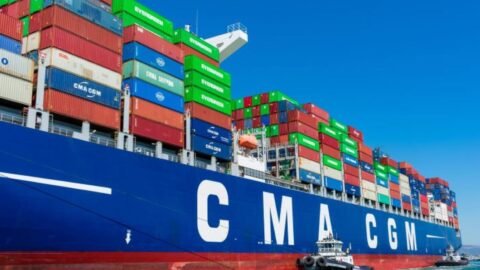Barbados Port Inc (BPI), the newest member of the International Port Community Systems Association (IPCSA), is looking forward to deepening relations with IPCSA while it continues to change the dynamics of logistics at the Port of Bridgetown with the introduction of its own Port Community System.
In the early stages of its PCS research, BPI identified IPCSA as a reference point for the project, and the associationhas proved to bea great resource from concept, through project implementation.
“Formalisation of the relationship with IPCSA is aligned with our broader vision for international trade and a part of our strategic approach to digitisation and the build-out of a more inclusive and integrated logistics platform,” said BPI CEO David Jean-Marie.
“As we embark on this new course, being able to share best practices and learning from other like minded,future-thinking organisationsis key to our continued growth,” he added.
The €540,258 Barbados PCS project, part-financed by the European Union and supervised by the Caribbean Development Bank, will introduce a paperless system for processing shipments at Bridgetown. The PCS is due to be operational in 2023.
IPCSA General Secretary Richard Morton said, “We were pleased to be able to support BPI in its important work to develop and implement a Port Community System and delighted by the team’s decision to join IPCSA as a full member. We look forward to sharing experience and knowledge from both sides.”
“IPCSA continues to expand its membership, in numbers and in geographical range. Having celebrated our tenth anniversary last year, we are progressing with a series of important projects, including our Network of Trusted Networks (NoTN), a unique, secure port-to-port and cross-border data exchange solution for supply chains,” Morton added.
The new PCS, according to BPI Digital Innovation and Development Manager, Rommel Edwards, will allow for easy and efficient electronic data interchange among state agencies and clients of the port, and the electronic handling of all information regarding clearance of containerised, general and bulk cargo. It will also provide real-time access to information for control, tracking and tracing through the logistics chain, allow for improved administration, recording, monitoring, reporting and analysis of data using the platform, and enable improved documentation through simplification, standardisation, rationalisation and harmonisation of clearance processes and procedures.
Coupled with a Maritime Single Window, also under development, these elements are critical to the port’s digital transformation is support of enhanced efficiency, performance and productivity, he explained.







